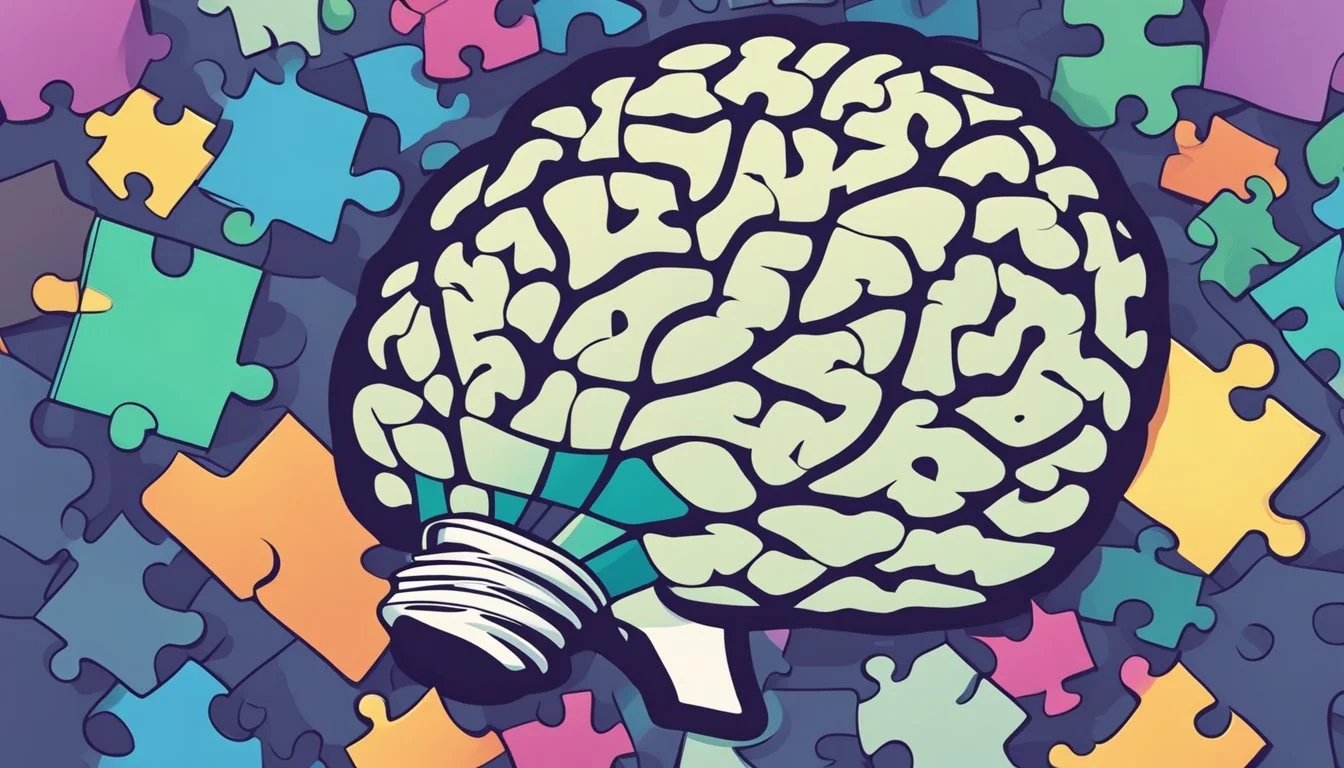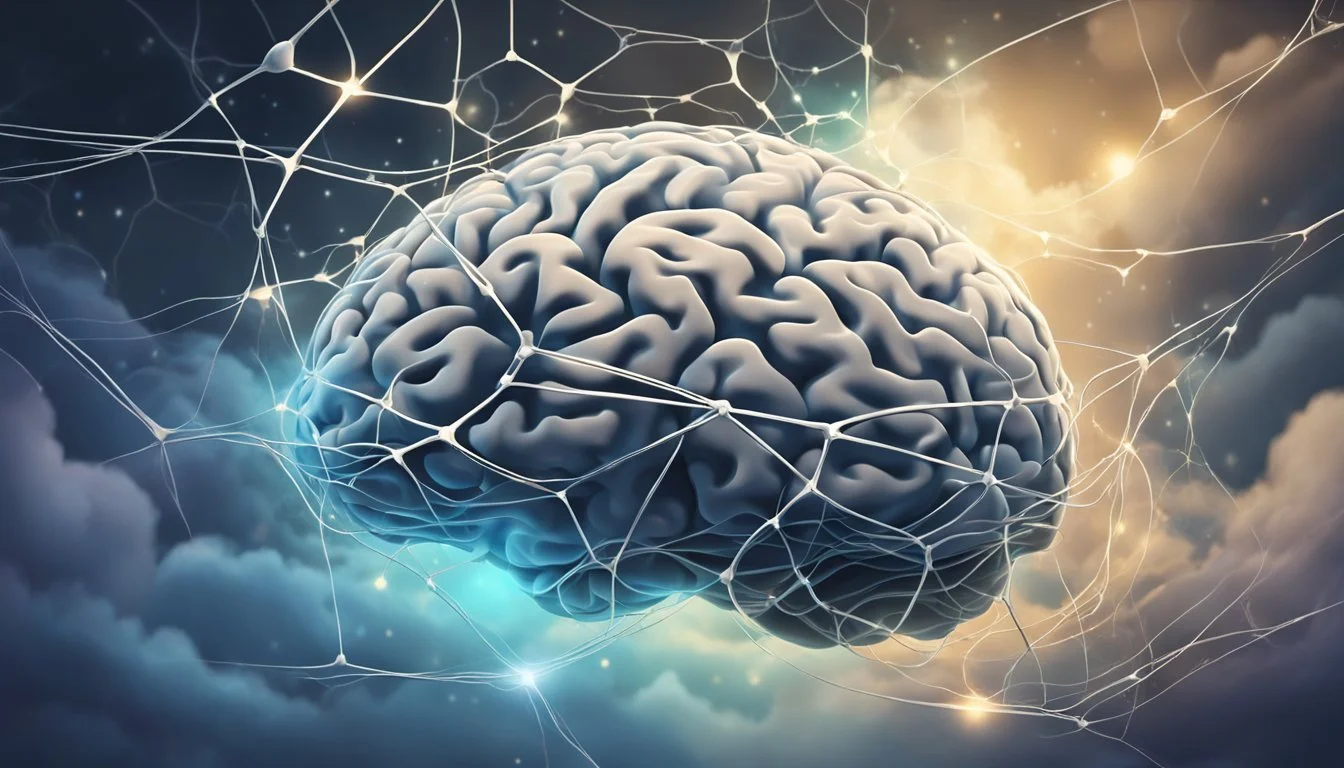7 Surprising Correlations Between Intelligence and Mental Health
Unveiling the Hidden Connections
Intelligence and mental health are complex, interrelated aspects of human cognition and well-being. Recent research has uncovered surprising connections between high intelligence and various mental health conditions. These findings challenge common assumptions about intelligence and shed light on the nuanced relationship between cognitive abilities and psychological well-being
While intelligence is often associated with positive life outcomes, studies have revealed unexpected correlations with certain mental health disorders. This article explores seven surprising links between intelligence and mental health, examining the potential reasons behind these connections and their implications for understanding human cognition and psychological development.
1) Link between High IQ and Anxiety Disorders
Research suggests a correlation between high intelligence and anxiety disorders. Studies have found that individuals with higher IQs are more likely to experience anxiety, particularly generalized anxiety disorder (GAD).
In one study, people with GAD and high IQs showed a greater tendency to worry compared to those with average intelligence. This relationship was not observed in healthy individuals, where higher IQ correlated with less worry.
The connection between intelligence and anxiety may be rooted in brain structure. Differences in white matter metabolism, which plays a role in information transmission, could explain this link.
Highly intelligent individuals might be more prone to overthinking and analyzing potential outcomes. This heightened awareness of risks and possibilities may contribute to increased anxiety levels.
It's important to note that while a correlation exists, high intelligence does not guarantee the development of anxiety disorders. Many factors contribute to mental health, and individual experiences vary widely.
2) Prevalence of OCD in Highly Intelligent Individuals
The relationship between obsessive-compulsive disorder (OCD) and intelligence has been a topic of interest in psychological research. Contrary to popular belief, studies have not consistently shown a higher prevalence of OCD among highly intelligent individuals.
A meta-analysis of 98 studies found no significant correlation between OCD and superior intelligence. In fact, some research suggests that OCD may be associated with slightly lower cognitive performance in certain areas, such as processing speed.
One study of 930 eighteen-year-olds found that those with OCD had somewhat higher IQ scores compared to participants without OCD. However, this finding has not been consistently replicated in other research.
Some studies have explored the relationship between OCD symptom severity and IQ in youth. A longitudinal study found a positive correlation between these factors, but more research is needed to confirm this association.
It's important to note that intelligence is complex and multifaceted. While some individuals with OCD may excel in certain cognitive areas, this does not necessarily indicate a higher overall IQ or increased prevalence of the disorder among highly intelligent people.
3) Intellectual Overexcitability and Mental Health
Intellectual overexcitability is a trait often observed in highly intelligent individuals. It manifests as an intense drive for knowledge, curiosity, and analytical thinking.
This characteristic can lead to both positive and negative outcomes for mental health. On one hand, it fuels creativity and problem-solving abilities, which can enhance cognitive function and personal satisfaction.
However, intellectual overexcitability may also contribute to increased stress and anxiety. The constant mental activity and deep analysis of complex issues can become overwhelming, potentially leading to overthinking and rumination.
Research suggests that individuals with high intellectual capacity may be more prone to certain psychological disorders. Their heightened sensitivity to environmental stimuli and tendency to process information deeply can make them more susceptible to emotional challenges.
The hyper-reactivity of the central nervous system in intellectually gifted individuals may also play a role in their mental health experiences. This heightened sensitivity can result in stronger emotional responses to various situations.
It's important to note that while intellectual overexcitability can present challenges, it also offers unique strengths. Developing coping strategies and finding appropriate outlets for intellectual pursuits can help mitigate potential negative impacts on mental health.
4) Stress Sensitivity in Gifted People
Gifted individuals often exhibit heightened sensitivity to stress compared to the general population. This increased stress sensitivity can manifest in various ways, affecting both their emotional and physical well-being.
Research suggests that gifted people tend to process information more deeply and intensely. This depth of processing extends to their perception of stressors, potentially amplifying their responses to challenging situations.
Many gifted individuals possess a keen awareness of their surroundings and social dynamics. While this trait can be advantageous, it may also lead to increased stress levels as they become more attuned to subtle environmental cues and interpersonal tensions.
The perfectionism often associated with giftedness can contribute to elevated stress levels. Gifted individuals may set exceptionally high standards for themselves, leading to anxiety and pressure to excel in multiple areas of life.
Studies have shown that gifted adolescents may experience unique stressors related to their abilities. These can include feeling different from peers, struggling with expectations, and grappling with existential questions at a young age.
Recognizing and addressing stress sensitivity in gifted individuals is crucial for supporting their mental health and overall well-being. Developing effective coping strategies and fostering a supportive environment can help mitigate the impact of stress on this population.
5) Higher Rates of Depression in High-IQ Individuals
Studies have indicated a potential link between high intelligence and increased rates of depression. Research involving participants with IQs tested multiple times during childhood has revealed a correlation between lower IQ scores and reduced risk of depression later in life.
This suggests that individuals with higher IQs may be more susceptible to developing depressive symptoms. The relationship between intelligence and mental health is complex, with various factors potentially contributing to this phenomenon.
Some experts propose that highly intelligent individuals may be more prone to overthinking or rumination, which can exacerbate depressive tendencies. Additionally, they may experience heightened sensitivity to their environment and social interactions.
Another theory suggests that gifted individuals might struggle with finding peers who share their intellectual interests, leading to feelings of isolation or alienation. This social disconnection could contribute to the development of depressive symptoms.
It's important to note that while these correlations exist, they do not imply causation. Many high-IQ individuals lead fulfilling lives without experiencing depression, and numerous factors influence mental health outcomes.
6) Emotional Intensity in Creative Geniuses
Creative geniuses often experience emotions with heightened intensity. This emotional sensitivity can be a double-edged sword, fueling their creative endeavors while potentially increasing vulnerability to mental health challenges.
Research suggests that individuals with exceptional creative abilities may possess a more reactive limbic system. This neurological difference can lead to stronger emotional responses to stimuli, both positive and negative.
The intense emotions experienced by creative geniuses can serve as a wellspring of inspiration. Many artists, writers, and musicians draw upon their deep emotional wells to produce powerful and moving works.
Emotional intelligence plays a crucial role in channeling these intense feelings into creative output. Those who can effectively manage and express their emotions often find greater success in their artistic pursuits.
However, this emotional intensity can also predispose creative geniuses to mood disorders. Studies have noted higher rates of depression, anxiety, and bipolar disorder among highly creative individuals compared to the general population.
The link between creativity and emotional intensity highlights the complex interplay between cognitive abilities and mental health. It underscores the importance of support systems and coping strategies for those navigating the challenges of exceptional creativity.
7) Mental Health Challenges in Highly Intelligent Women
Highly intelligent women face unique mental health challenges. Research suggests they may experience increased rates of certain conditions compared to the general population.
Anxiety and depression are common among gifted women. The pressure to achieve and perfectionism can contribute to these issues. Imposter syndrome is also prevalent, causing self-doubt despite clear evidence of abilities.
Social isolation can be a concern for highly intelligent women. They may struggle to find peers who share their interests and level of cognitive engagement. This can lead to feelings of loneliness and difficulty forming close relationships.
Highly intelligent women often grapple with societal expectations and gender stereotypes. The conflict between their intellectual capabilities and traditional gender roles can create internal tension and stress.
Some studies indicate a higher prevalence of certain neurodevelopmental conditions among highly intelligent individuals. This includes conditions like autism spectrum disorder and attention deficit hyperactivity disorder.
Gifted women may also experience heightened sensitivities. This can manifest as intense emotional responses or increased sensitivity to sensory stimuli, potentially leading to overwhelm or anxiety in certain environments.
Understanding Intelligence and Mental Health
Intelligence and mental health are complex, interrelated aspects of human cognition and well-being. Their connection involves various factors, from genetics to environmental influences.
Definitions and Key Concepts
Intelligence refers to cognitive abilities such as reasoning, problem-solving, and learning. It encompasses multiple skills and can be measured through standardized tests like IQ assessments.
Mental health involves emotional, psychological, and social well-being. It affects how people think, feel, and act, influencing their ability to handle stress and make decisions.
The relationship between intelligence and mental health is multifaceted. High intelligence may provide cognitive resources to cope with challenges, but it can also increase sensitivity to environmental stressors.
Types of Intelligence
Multiple intelligence theory proposes several distinct forms of intelligence:
Logical-Mathematical
Linguistic
Spatial
Musical
Bodily-Kinesthetic
Interpersonal
Naturalistic
Each type contributes uniquely to cognitive functioning and problem-solving abilities. Some individuals excel in specific areas while others demonstrate more balanced capabilities across multiple domains.
Mental Health Disorders Overview
Common mental health disorders include:
Anxiety disorders
Mood disorders (e.g., depression, bipolar disorder)
Schizophrenia spectrum disorders
Eating disorders
Personality disorders
These conditions can affect individuals across the intelligence spectrum. Research suggests potential links between certain disorders and cognitive abilities.
For example, studies have explored connections between high intelligence and increased risk for mood disorders or anxiety. Conversely, some cognitive deficits may be associated with specific mental health conditions.
Genetic factors play a role in both intelligence and mental health. The DARPP-32 gene has been implicated in cognitive performance and schizophrenia risk, highlighting potential shared biological pathways.
Exploring Correlations Between Intelligence and Mental Health
Recent research has uncovered intriguing links between intelligence and various aspects of mental health. Genetic factors and environmental influences both play important roles in these complex relationships.
Overview of Recent Studies
Studies have found surprising connections between intelligence and happiness. Higher intelligence correlates with better mental health outcomes in some cases. However, highly intelligent individuals may also face unique mental health challenges.
One study examined associations between intelligence mindset and mental wellbeing. Those with a "growth mindset" about intelligence tended to have more positive mental health. This belief that intelligence can be developed through effort appears beneficial psychologically.
Research has also explored links between IQ scores and mental disorder diagnoses. Individuals with IQs between 70-85 showed increased risk for certain conditions compared to higher IQ groups.
Genetic and Environmental Factors
Genetic correlations exist between intelligence test scores and various health and mental health measures. Brain size also shows genetic links to intelligence. These shared genetic influences suggest common biological pathways.
Environmental factors like education, nutrition, and early life experiences impact both cognitive development and mental health. Socioeconomic status affects access to resources that support intelligence and psychological wellbeing.
Gene-environment interactions are likely important. An individual's genetic predisposition may influence how environmental factors affect their intelligence and mental health outcomes.
Epigenetic mechanisms provide another link. Early life stress can alter gene expression in ways that affect both cognitive function and mental health risk.


